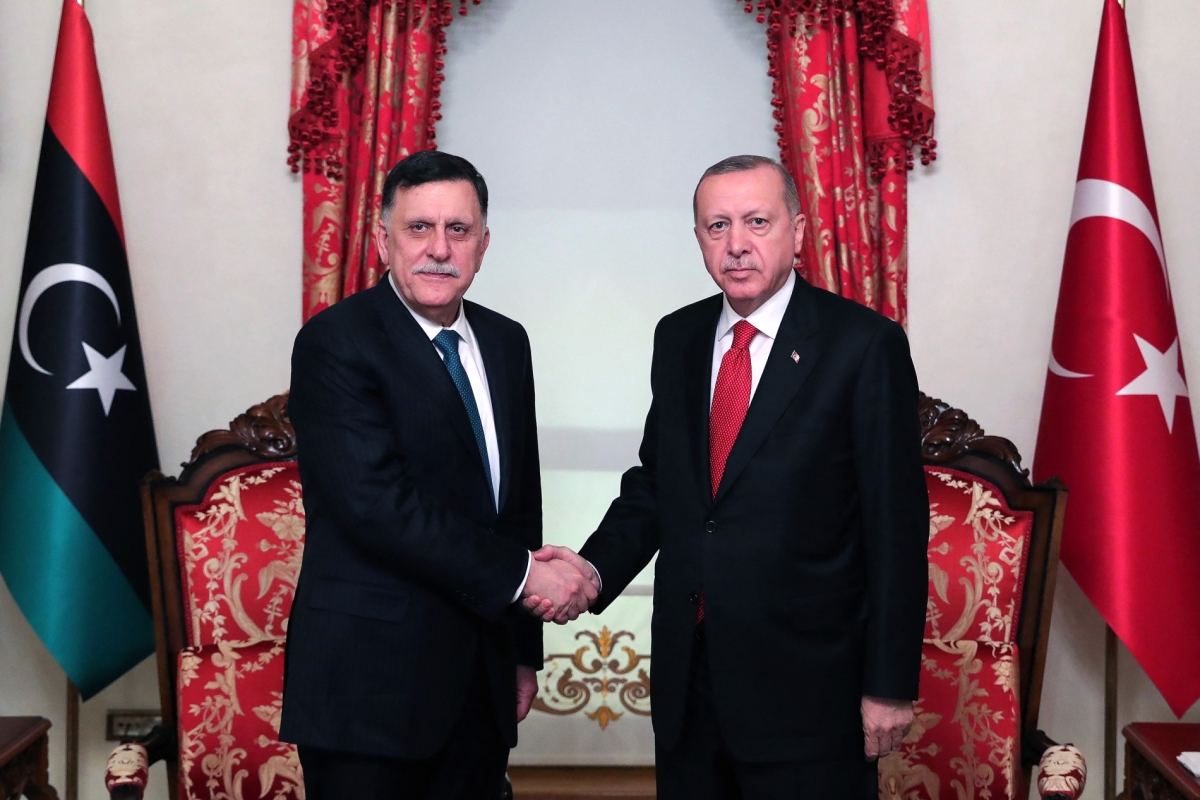After the downfall of Libya’s long-time ruler Muammar Gaddafi in 2011, the nation drifted into a civil war between east and west. The west, based in the capital, Tripoli, has been led by the Government of National Accord (GNA), while in the east, the Libyan National Army (LNA) and the House of Representatives have been based in Tobruk.
During the civil war, Türkiye stood with Tripoli, saving the GNA from collapse under attack from the LNA, led by Khalifa Haftar. A ceasefire and process of reconciliation followed. The ceasefire largely held, but today Libya is still divided between these two power bases, with a maritime dispute in the Mediterranean Sea recently bringing this divide into sharper focus.
A maritime agreement was signed between Tripoli and Ankara in 2019. Tobruk declared it to be illegitimate and, to date, it has not ratified it. But in recent months, there have been signs that it may do so, sounding alarms in several countries in the eastern Mediterranean, not least Greece, with whom Türkiye has a fractious relationship. All this matters because there are vast reserves of highly valuable natural gas under the seabed, so maritime agreements help define whose gas it is.
Setting boundaries
The 2019 agreement delineates maritime boundaries between Libya and Türkiye and draws the western border of Türkiye’s continental shelf and exclusive economic zone (EEZ). In the Eastern Mediterranean, there are no borders defined by international law, so they are drawn by agreements between countries, following compromises. There are other eastern Mediterranean maritime agreements signed between nations, including Egypt, Greece, Cyprus, and Israel. Problems arise when the areas and boundaries defined in different agreements overlap, as has happened in the eastern Mediterranean.
There have also been geopolitical developments. For instance, Türkiye and Egypt seem to have patched up their differences. Türkiye and the United Arab Emirates (which supports Haftar) have also mended fences. Türkiye continues to enjoy strong ties with Tripoli, but has recently been improving relations with Tobruk and Haftar.
Saddam Haftar meets with Turkish Defense Minister Yaşar Güler and Turkish Land Forces Commander Selçuk Bayraktaroğlu in Ankara. #Libya #ليبيا pic.twitter.com/xRuIQw8AUC
— Alwasat Libya (@alwasatengnews) April 4, 2025
Speaker of the House of Representatives Akile Salih, along with Haftar’s son Saddam (an LNA commander), even flew into Ankara on official visits. These have been important factors in the improvement of relations between Tobruk and Ankara.
The Turkish Parliament ratified the maritime agreement on 5 December 2019 and notified the United Nations. Later extensions of the initial agreement granted Türkiye rights to explore oil and gas in Libyan territorial waters. After objections from Greece and others, Libya submitted a note verbale to the UN on 27 May 2025, which the UN published on 1 July.
The note includes a map outlining the “outer limits of the continental shelf in the Mediterranean Sea”, reiterates that the 2019 agreement constitutes “an equitable solution reached based on international law,” and asserts that “neither Greece, nor Egypt is entitled to sovereign rights in the maritime areas delimited between Libya and Türkiye in accordance with international law”. A further note from Libya to the UN on 20 June accused Greece of violating Libya’s rights by leasing two offshore blocks south-west of Crete (an area covered by the 2019 agreement) to US oil giant ExxonMobil.









